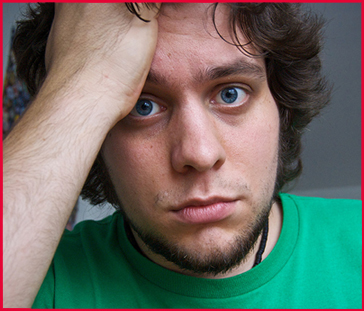
When the body is considered as nothing more than a physical entity, all the answers are so easy, and everyone knows them. To lose weight, burn more energy and stoke the machine with higher-quality fuel, and less of it. Ta-dah!
Or not. Except in the case of very small children and the incapacitated, the inescapable problem is that each body’s eating program is pretty much controlled by the brain, and a lot of complicated activity goes on up there. As humans, we are constantly subject to frustration, boredom, sadness, and the whole range of emotions that can mess up our day and send us around the bend, where scoops of ice cream are waiting to make us feel better. Food addiction is one of the many possible addictions that too many of us resort to, trying to deaden emotions.
Stuffing ourselves with food is a recognized technique for containing emotions, tamping them down inside ourselves with many layers of matter weighing heavily on top, keeping them firmly in place. We each have our own reasons for doing that, and sometimes the reasons go back to their dreadful origins.
A man had told me once that his own history as an abused child made him fearful of what he might do, if he ever got close enough to another human being to do it. So, as a preventative measure, he grew very, very fat, insuring that no one would accept him as a sexual partner. It’s one way of handling a problem, but not the optimal way.
In an article called “Managing the Emotions Behind Eating,” Science Daily recognizes the fatal flaw in most weight-loss regimes: the human factor. People, even children and teenagers, have a whole lot more going on than an after-school nutrition class can deal with. So the authors pose the question,
How can people who have eaten to cope with emotions change their eating habits, when they haven’t learned other ways of coping with emotions?
We learn from the article that researchers at the Center for Obesity Research at Temple University in Philadelphia, PA, are trying out a new weight-loss treatment modality that includes education on coping skills. They have noticed that short-term success is all too often followed by recidivism. They are addressing the gap left by behavioral weight-loss programs. The object is to figure out how to eliminate or handle the contributing factors that lead to emotional eating. The mission is to break the destructive up-and-down cycle and forge a path to permanent success.
In Overweight: What Kids Say, Dr. Pretlow recounts his correspondence with the editor of Pediatrics, which had published a special supplement on obesity among the young. In those pages, the problem of emotional eating had been overlooked, which he thought should be brought to the journal’s attention. However, Pediatrics was unimpressed, stating that there had been no research, an omission which this ongoing Temple University study will help to correct.
Your responses and feedback are welcome!
Source: “Managing the Emotions Behind Eating,” Science Daily, 05/05/10
Source: “Overweight: What Kids Say,” Amazon.com
Image by dotbenjamin, used under its Creative Commons license.

 FAQs and Media Requests:
FAQs and Media Requests: 












0 Responses